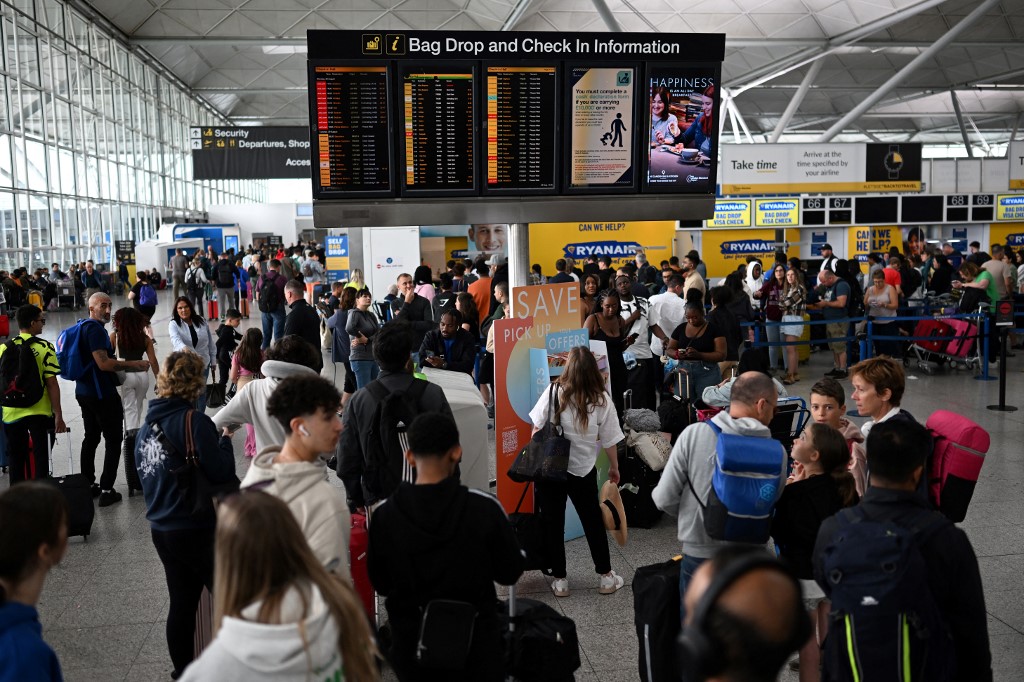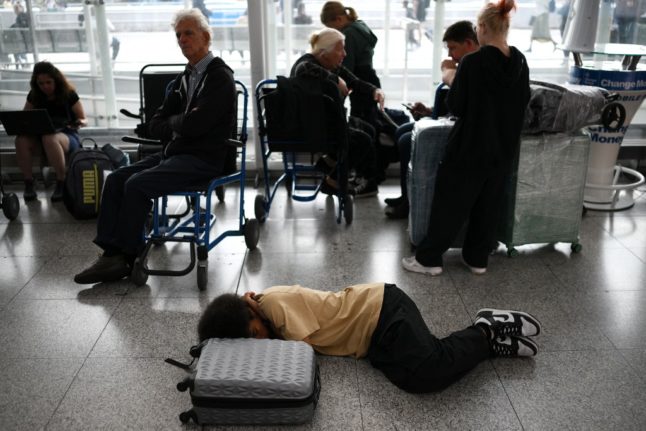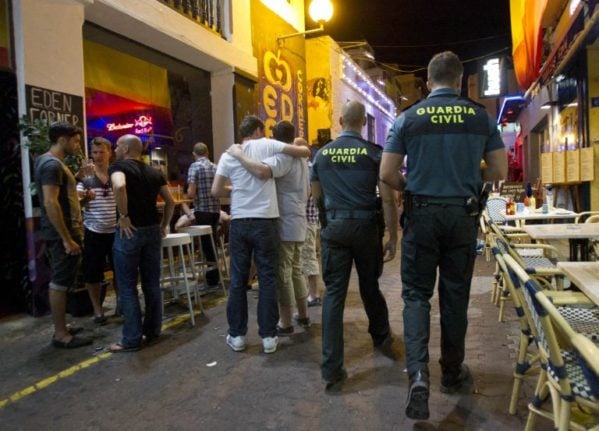Monday and Tuesday were chaotic days at some UK airports due to a computer failure in the flight plan system that caused the cancellation of hundreds of flights.
In total 1,500 flights were cancelled or severely delayed, leaving thousands of passengers stuck in British airports and thousands more stranded abroad, waiting for their flight home after the summer holidays.
The travel disruption was not only limited to the UK. In particular, the chaos in Britain had a ripple effect on the Spanish skies.
On the Monday alone, nearly 300 flights were affected in Spain, according to Spain’s state airport operator Aena, with no data published yet for Tuesday 29th.
Spain is one of the most popular summer destinations among British holidaymakers, and the failure came just as the season was drawing to a close and as many thousands of them were preparing to return home.
Thousands were grounded, stuck at Spanish airports and unable to fly back to the United Kingdom.
On Monday, there were over 280 flights cancelled at airports in Spain. At Palma de Mallorca airport, 40 flights were affected between departures and arrivals.
The Balearic Islands were also hit by hurricane-force winds and rain that caused many more cancellations and turned Palma airport into a campsite of disgruntled travellers.
At Ibiza airport, 35 flights were cancelled; Alicante 31; Tenerife South 28; at Barcelona El Prat 27; at Malaga-Costa del Sol, 24; Madrid Barajas, 14.
In Gran Canaria, 15 flights were delayed; in Lanzarote, 13 flights; and six more in Fuerteventura.

The technical failure lasted from midday on Monday August 28th until approximately 3pm that same afternoon. This was then compounded by another failure at the Rome control centre, which caused international delays to hundreds of further flights and forced the cancellation of hundreds more.
Budget airline giants such as Ryanair had to cancel 250 flights across Europe on Monday and another 70 on Tuesday. In total, some 40,000 Ryanair passengers were affected by delays and cancellations, according to a video posted to social media by CEO Michael O’Leary.
The glitch has now been fixed and will not happen again, the head of NATS, the UK’s air traffic control provider, promised on Wednesday.
Martin Rolfe, CEO of NATS, blamed the problem on a single flight plan which was “not sufficiently standard”.
“We’ve worked incredibly hard since we restored the service back on Monday to make sure that this type of event can’t happen again,” he told the BBC.
Airlines including Ryanair criticised NATS for having a back-up system in case of technical problems.
With many of their planes and crews still stuck in the wrong places, airlines were on Wednesday doing their best to get schedules back on track and make some progress with the backlog of cancelled and delayed flights in and out of Britain.
EasyJet has added five extra flights from holiday hotspots destinations in Spain and Portugal to fly stranded passengers home.



 Please whitelist us to continue reading.
Please whitelist us to continue reading.
Member comments